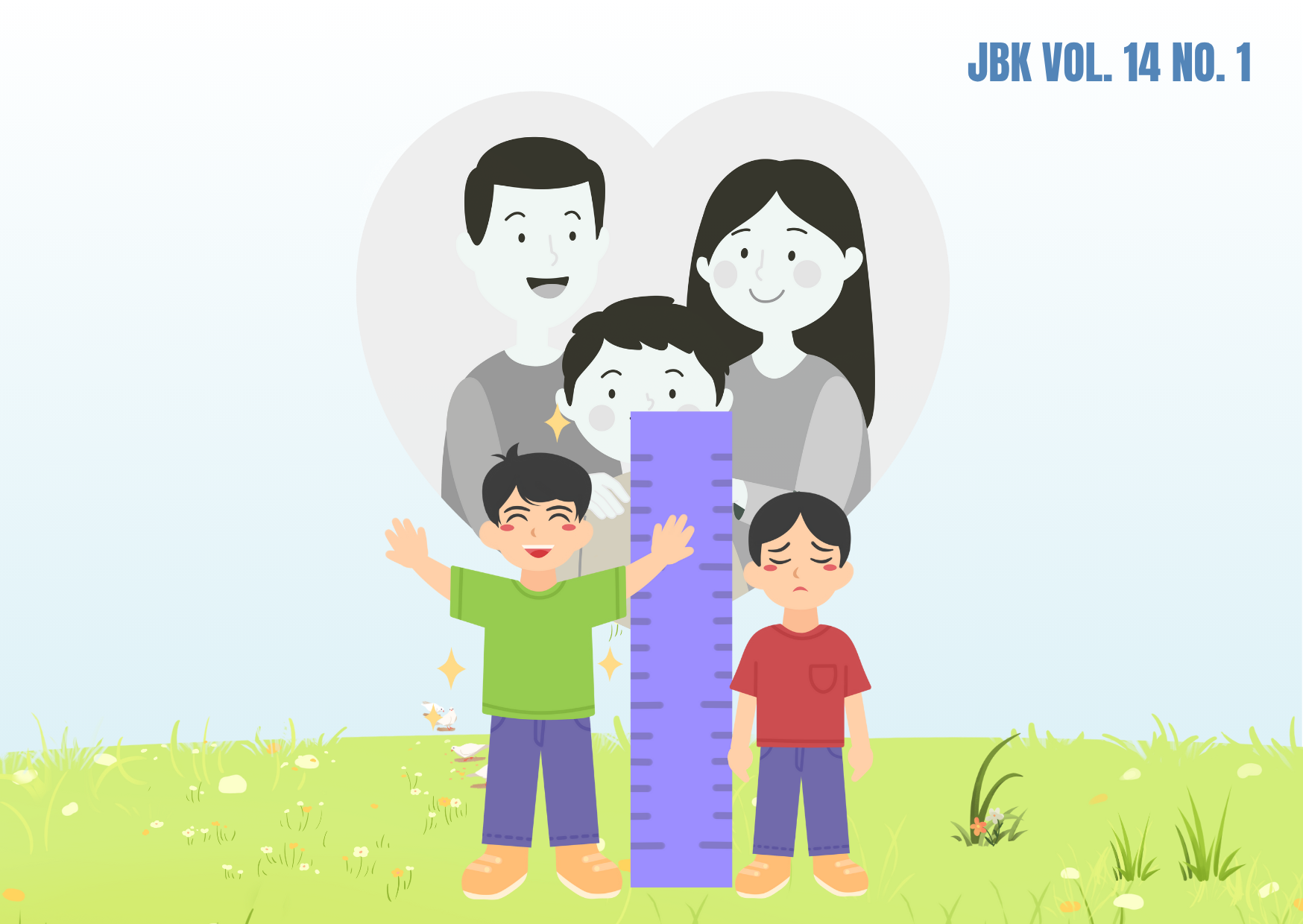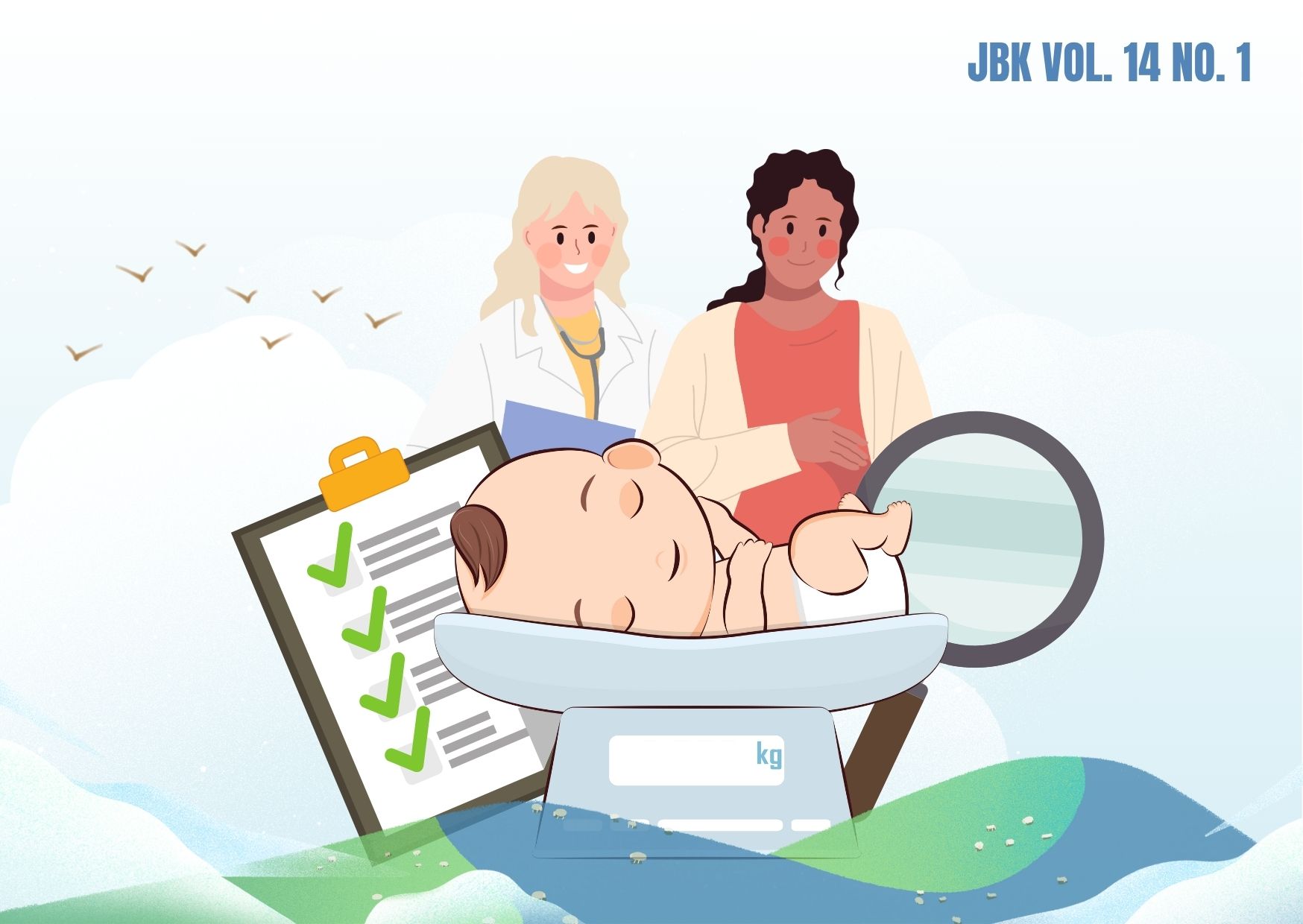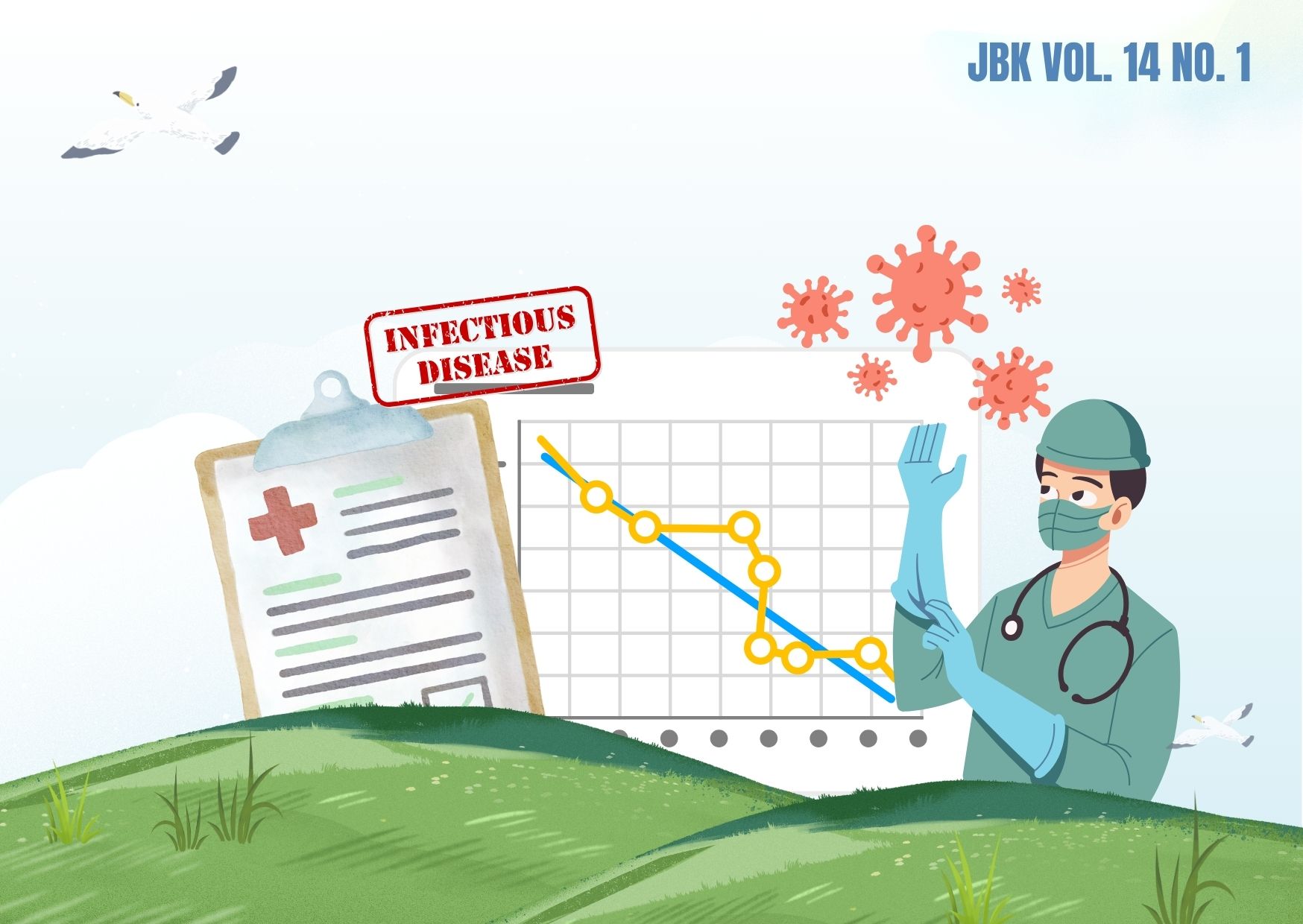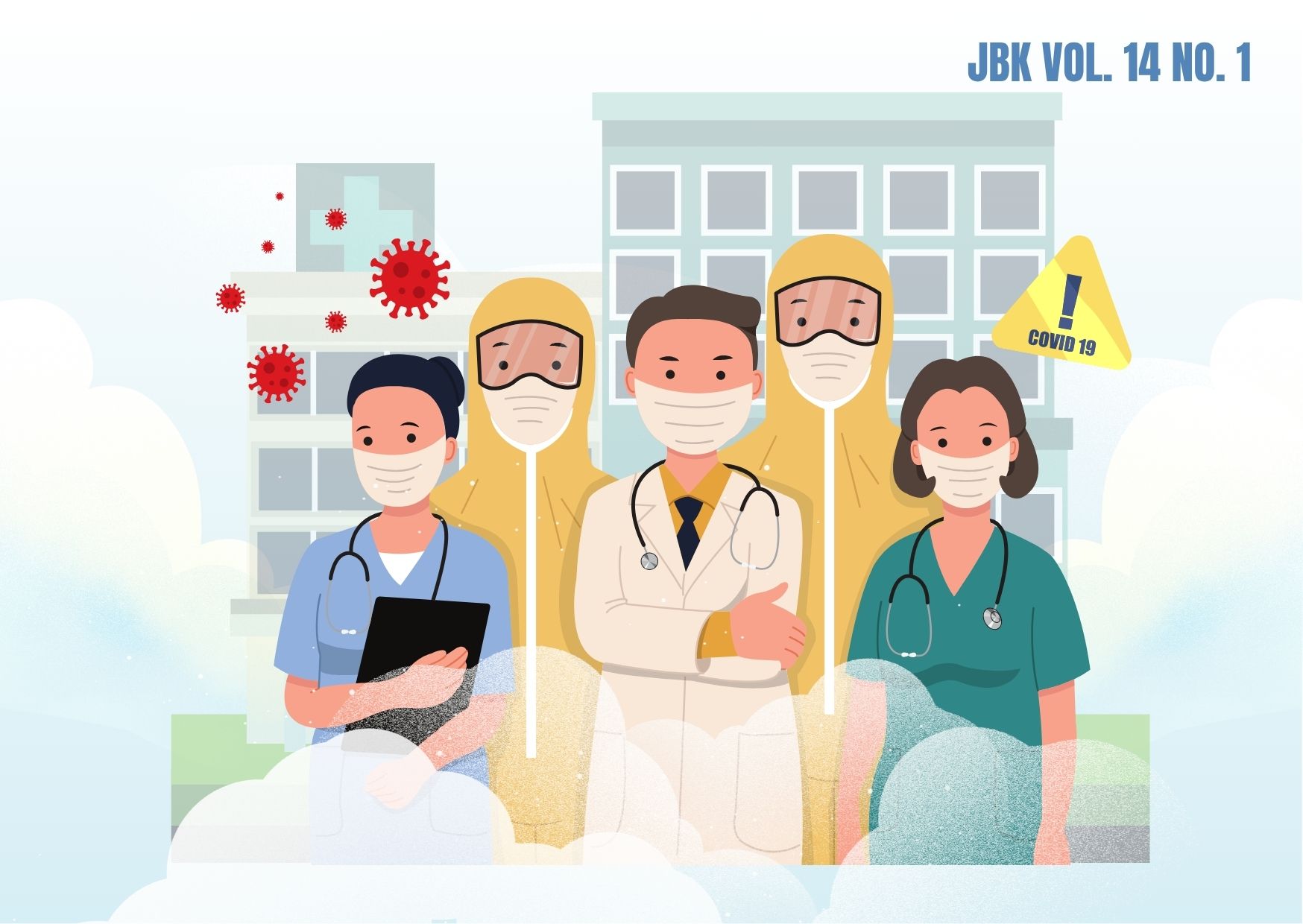POSTPARTUM FAMILY PLANNING IN DKI JAKARTA: RUN CHART ANALYSIS

Downloads
Maternal Mortality Rate (MMR) is one of the national health indicators to achieve the success of maternal health efforts where the number of MMR in Indonesia reached 305 per 100,000 live births. Family planning services including Post Partum Family Planning/Keluarga Berencana Pascapersalinan (KBPP) can effectively reduce maternal mortality by reducing births and reducing high risk. The high number of KBPP users in DKI Jakarta can be caused by many things such as local government support, level of service by health workers, and others. Therefore, this study aims to analyze and find out the special causes that cause the number of KBPP participants in DKI Jakarta and as a lesson learned for other local governments. This research is a descriptive study to see the variety of data on the number of KBPP participants in DKI Jakarta. Univariate analysis was used to describe the number of KBPP participants and bivariate analysis to explain the characteristics of the variables studied based on time, namely in the form of a run chart. Based on four tests that have been carried out on the data on the number of KBPP participants in DKI Jakarta, it can be said that there is one test that meets the requirements as a variation of system data so that there is a special cause that causes the number of KBPP participants in 2019-2020. The existence of policy support from the DKI Jakarta Provincial Government, and various stakeholders has resulted in high coverage of the use of postpartum family planning.
Ministry of Health of Indonesia. Profil Kesehatan Indonesia Tahun 2019 [Internet]. Jakarta: Kementerian Kesehatan RI; 2020. Available from: https://pusdatin.kemkes.go.id/resources/download/pusdatin/profil-kesehatan-indonesia/Profil-Kesehatan-indonesia-2019.pdf
National Population and Family Planning Board. Survei Kinerja dan Akuntabilitas Survei Program KKBPK (SKAP) Keluarga [Internet]. I. Vol. 53. Jakarta: Puslitbang KB dan KS Badan Kependudukan dan Keluarga Berencana Nasional; 2019. 1689–1699 p. Available from: https://cis.bkkbn.go.id/latbang/?wpdmpro=laporan-skap-2019-keluarga
National Population and Family Planning Board, Statistics Indonesia, Ministry of Health of Indonesia and ICF. Indonesia Demographic and Health Survey 2017 [Internet]. Jakarta: BKKBN, BPS, Kemenkes, and ICF; 2018. 588 p. Available from: https://dhsprogram.com/pubs/pdf/FR342/FR342.pdf
Ministry of Health of Indonesia. Laporan Nasional Riskesdas 2018 [Internet]. Jakarta: Lembaga Penerbit Badan Penelitian dan Pengembangan Kesehatan; 2019. 198 p. Available from: http://labdata.litbang.kemkes.go.id/images/download/laporan/RKD/2018/Laporan_Nasional_RKD2018_FINAL.pdf
Department for Empowerment Child Protection and Population Control (DPPAPP) DKI Jakarta Province. Laporan Kinerja Instansi Pemerintah [Internet]. 2019. Available from: https://www.bkkbn.go.id/
Akachi Y, Kruk ME. Quality of Care: Measuring a Neglected Driver of Improved Health. Bull World Health Organ [Internet]. 2017 Jun 1;95(6):465–72. Available from: https://www.ncbi.nlm.nih.gov/pmc/articles/PMC5463815/#
Department for Empowerment Child Protection and Population Control (DPPAPP) DKI Jakarta Province. Renstra DPPAPP Provinsi DKI Jakarta Tahun 2017-2022 [Internet]. Dinas Pemberdayaan, Perlindungan Anak dan Pengendalian Penduduk Provinsi DKI Jakarta. 2018. Available from: https://dppapp.jakarta.go.id/wp-content/uploads/2020/01/Renstra20DPPAPP202017-2022.pdf
Zimmerman LA, Yi Y, Yihdego M, Abrha S, Shiferaw S, Seme A, et al. Effect of integrating maternal health services and family planning services on postpartum family planning behavior in Ethiopia: results from a longitudinal survey. BMC Public Health [Internet]. 2019 Dec 4;19(1):1448. Available from: https://bmcpublichealth.biomedcentral.com/articles/10.1186/s12889-019-7703-3
Ministry of Health of Indonesia. Panduan Pelayanan Keluarga Berencana dan Kesehatan Reproduksi dalam Situasi Pandemi COVID19 [Internet]. 2020 [cited 2021 Jun 30]. Available from: https://covid19.kemkes.go.id/protokol-covid-19/panduan-pelayanan-kb-dan-kespro-dalam-situasi-pandemi-covid-19/
Provincial Government of DKI Jakarta. Linimasa Kebijakan Pemprov DKI Jakarta Terkait Penanganan COVID-19 [Internet]. 2020 [cited 2021 Jun 30]. Available from: https://corona.jakarta.go.id/id/kebijakan
Ramdhani A, Ramdhani MA. Konsep Umum Pelaksanaan Kebijakan Publik. J Publik [Internet]. 2017;11(1):1–12. Available from: https://core.ac.uk/download/pdf/234687418.pdf
Coomson JI, Manu A. Determinants of Modern Contraceptive Use Among Postpartum Women in Two Health Facilities in Urban Ghana: A Cross Sectional Study. Contracept Reprod Med [Internet]. 2019;4(1):1–11. Available from: https://dx.doi.org/10.1186/s40834-019-0098-9
Wulandari A. Gambaran Pengetahuan Suami Mengenai KB Pasca Salin di Puskesmas Kecamatan Pasar Rebo Jakarta Timur Tahun 2020 [Internet]. 45.112.126.114. 2020. Available from: http://45.112.126.114/perpustakaan/repository/repository/LAPORAN_LTA_AYU_WULANDARI[1].pdf
Sembiring JB, Suwardi S, Saragih HJ. Faktor-Faktor yang Berhubungan dengan Kesediaan Menjadi Akseptor KB Pasca Persalinan di RSUD Deli Serdang Lubuk Pakam Tahun 2019. J Ilm Univ Batanghari Jambi [Internet]. 2020;20(2):571–9. Available from: https://dx.doi.org/10.33087/jiubj.v20i2.907
Siregar PA, Tarigan AA, Ancha M. The Role Of Midwives And Participation Of Postpartum Mothers In Postpartum Family Planning. J Kebidanan dan Kesehat Tradis [Internet]. 2021;6(September):62–73. Available from: http://www.jurnalbidankestrad.com/index.php/jkk/article/view/252/136
USAID. Strengthening Family Planning Policies and Programs in Developing Countries : an Advocacy Toolkit [Internet]. 2005. 1–84 p. Available from: www.policyproject.com
Bekele D, Surur F, Nigatu B, Teklu A, Getinet T, Kassa M, et al. Contraceptive prevalence rate and associated factors among reproductive age women in four emerging regions of Ethiopia: a mixed method study. Contracept Reprod Med [Internet]. 2021 Dec 1;6(1):18. Available from: https://contraceptionmedicine.biomedcentral.com/articles/10.1186/s40834-021-00162-9
Sunarti N. Implementasi Kebijakan Pemerintah dalam Melaksanakan Program Pembangunan. J Ilm Ilmu Pemerintah [Internet]. 2016;02(02):78–796. Available from: https://jurnal.unigal.ac.id/index.php/moderat/article/view/2696/2318
Astuti WS, Laksmono BS. Analisis Implementasi Kebijakan Pelayanan Keluarga Berencana Bergerak di Provinsi DKI Jakarta Tahun 2019. J Ilmu Adm Publik, Pemerintah dan Polit [Internet]. 2020;3(10):88–106. Available from: http://ejournal.goacademica.com/index.php/japp/article/view/323/307
National Population and Family Planning Board, Ministry of Health of Indonesia, Ministry of National Development Planning, United Nations Fund for Population Activities, Embassy of Canada. Strategi Pelaksanaan Program Keluarga Berencana Berbasis Hak untuk Percepatan Akses terhadap Pelayanan Keluarga Berencana dan Kesehatan Reproduksi yang Terintegrasi dalam Mencapai Tujuan Pembangunan Indonesia [Internet]. Jakarta: BKKBN, Kemenkes RI, Bappenas, UNFPA, Embassy of Canada; 2017. 1–110 p. Available from: https://rhknowledge.ui.ac.id/uploads/resource_file/file/65/Rights_Based_Family_Planning_Indonesia.pdf
Copyright (c) 2022 Jurnal Biometrika dan Kependudukan

This work is licensed under a Creative Commons Attribution-NonCommercial-ShareAlike 4.0 International License.
Copyright©2022 Jurnal Biometrika dan Kependudukan (Journal of Biometrics and Population)
This work is licensed under a Creative Commons Attribution-NonCommercial-ShareAlike 4.0 International License.
1. Copyright of all journal manuscripts is held by the Jurnal Biometrika dan Kependudukan.
2. Formal legal provisions to access digital articles of the electronic journals are subject to the provision of the Creative Commons Attribution-ShareAlike license (CC BY-NC-SA), which means that Jurnal Kesehatan Biometrika dan Kependudukan to keep, transfer media/format, manage in the form of databases, maintain, and publish articles.
3. Published manuscripts both printed and electronic are open access for educational, research, and library purposes. Additionally, the editorial board is not responsible for any violations of copyright law.



































